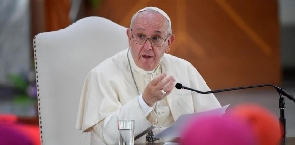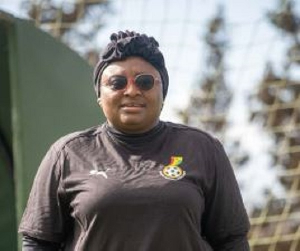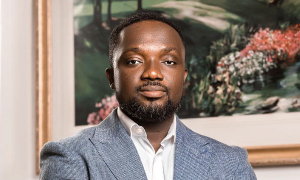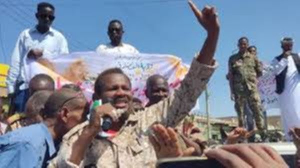Physician, academic, and researcher who served as the Rector of the Ghana College of Physicians and Surgeons. Born on July 27, 1957, in Winneba, Ghana, he died from complications of COVID-19 in Accra, Ghana, on April 10, 2020, aged 62 years. As a researcher on chronic diseases, particularly hypertension, Jacob Plange-Rhule was a sought-after collaborator in designing and conducting studies.
He was also ready to assist Ghanaian policy makers looking to translate his research into guidelines that would benefit communities. And as a professor of physiology, his door was always open to students seeking him out for mentorship and advice.
“He had an extraordinary ability to lift people up”, said Juliet Iwelunmor, an Associate Professor in Global Health in the Department of Behavioral Science and Health Education at Saint Louis University, USA, who collaborated on research with Plange-Rhule on optimal hypertension control in sub-Saharan Africa. “He made it seem like we all had knowledge to share.”
Plange-Rhule, born just months after Ghana achieved independence, completed his undergraduate and medical studies at Kwame Nkrumah University of Science and Technology (KNUST) in Kumasi, Ghana, in 1984. 7 years later, he received a PhD in renal physiology from what was then the Victoria University of Manchester, UK.
He returned to Kumasi and rose through the medical ranks at Komfo Anokye Teaching Hospital, where he helped set up renal and hypertension clinics, while also pursuing a career as an academic and researcher at KNUST. He recognised the importance of studying hypertension and chronic kidney disease in sub-Saharan Africa, and Plange-Rhule’s early work included a study that assessed the effect of population dietary salt reduction on the burden of hypertension.
“He understood the ecology of medicine, putting scientific medicine in a social context and then how to go about building up a research enterprise right across the spectrum from genetics to societal and behavioural intervention”, said Kennedy Cruickshank, Professor of Cardiovascular Medicine and Diabetes at King’s College London, UK.
More recently, Plange-Rhule had become interested in how to shift some aspects of hypertension care and treatment to other health workers in response to the shortage of doctors in Ghana, according to Kwaku Poku Asante, the Director at Kintampo Health Research Centre in Kintampo, Ghana, who had collaborated with Plange-Rhule on hypertension control strategies. “His work was cardinal”, Asante said. “It has the potential to prevent so many deaths.
”Plange-Rhule supported researchers hoping to conduct work in Ghana. “He was the one you went to for advice, for guidance”, Iwelunmor said. “He had the in-depth knowledge of Ghana’s health system.” His willingness to offer guidance was evident in his academic career. After serving for more than a decade as the head of KNUST’s Department of Physiology, he became Rector of the Ghana College of Physicians and Surgeons (GCPS) in Accra in 2015.
Gordon Donnir, one of his former students, who is now pursuing a doctorate in psychiatry at the University of Newcastle, Australia, said: “His nature was that of a calm, fatherly figure. He was ready to listen, ready to help.” As a result, Donnir said, students were drawn to him, seeking him out for both professional and personal advice: “He would not only help you with your problem, but see you through the long term. That set him apart from the rest.”
He also “had a keen eye for identifying eager, bright young college graduates…he introduced them to his range of research projects, gave them responsibility, and eventually the authority needed to be independent”, said Amy Luke, a Professor and Vice Chair of Public Health Sciences in the Parkinson School of Health Sciences and Public Health at Loyola University Chicago, USA, and a long-time collaborator with him on the Modeling the Epidemiologic Transition Study.
“His legacy has been enormous. There is a group of doctors practising today only because of his guidance and mentorship”, Asante said. John Nkrumah Mills, President of GCPS, said that “every student he taught, he remembered them personally. He was really interested in their career.” Mills said that Plange-Rhule helped to transform GCPS, overseeing a curriculum review and introducing a mentorship programme.
“He was what the quintessential academic should be in Africa”—said Olugbenga Ogedegbe, Director of the Division of Health and Behavior in the Department of Population Health at the New York University Grossman School of Medicine, who collaborated with Plange-Rhule on several research initiatives, including the GRIT Consortium—“somebody who practises medicine, who teaches and mentors people, and who actually conducts evidence-based research.”
Plange-Rhule served a term as President of the Ghana Medical Association and was a fellow of the West African College of Physicians and the Royal College of Physicians. He is survived by his wife, Gyikua, and three children.
Opinions of Wednesday, 17 June 2020
Columnist: Gordon Donnir



















